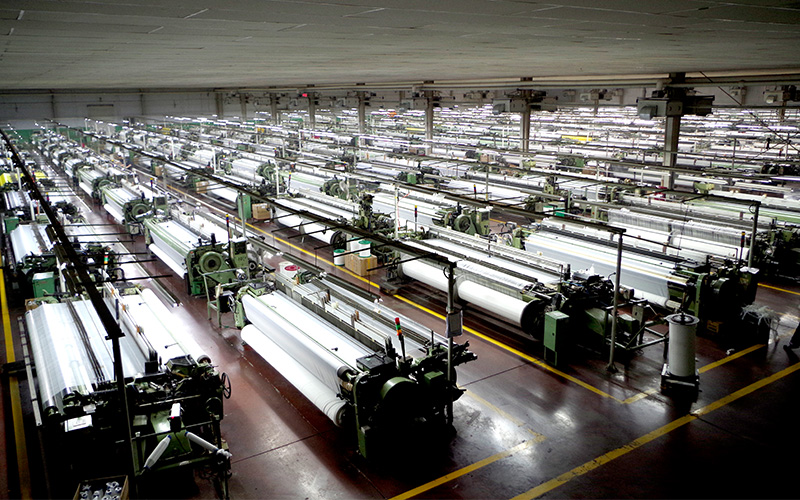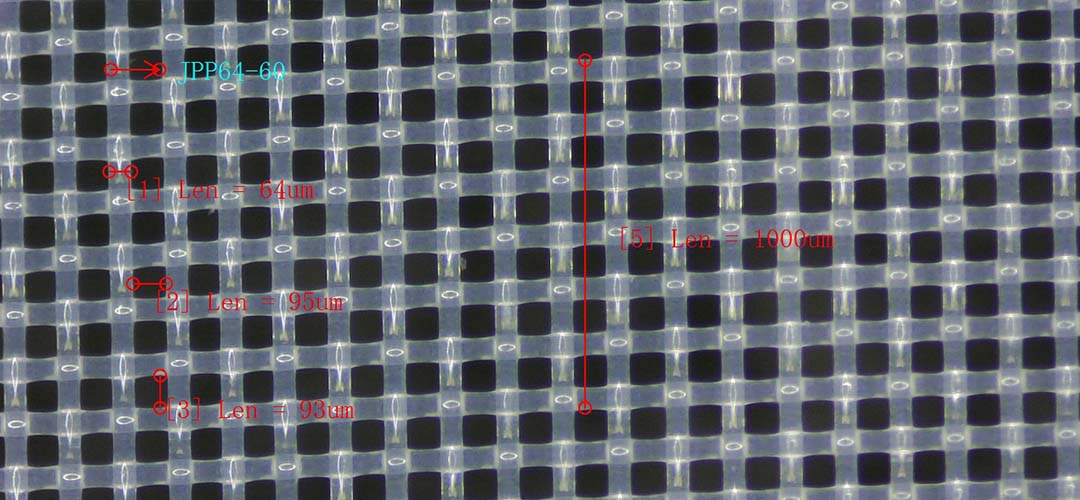Polyester filter mesh is a versatile material widely used in various industries due to its unique properties and performance characteristics. One of the primary advantages of polyester is its excellent chemical resistance, which allows it to withstand exposure to a range of substances without degrading. This property makes polyester filter mesh particularly suitable for applications in the chemical processing and food industries, where it is essential to maintain the integrity of the filtration process. Additionally, polyester exhibits good dimensional stability, meaning it retains its shape and size even under varying temperatures and humidity levels. This stability is crucial in ensuring consistent filtration performance over time.
Another significant property of polyester filter mesh is its high tensile strength. This strength enables the mesh to endure mechanical stress during operation, making it ideal for applications that require durability and reliability. For instance, in the mining and mineral processing sectors, polyester filter mesh is often employed to separate valuable minerals from waste materials. The ability to withstand harsh conditions while maintaining structural integrity is a key factor that contributes to its widespread use in these demanding environments.

Moreover, polyester filter mesh is known for its excellent filtration efficiency. The mesh can be manufactured in various pore sizes, allowing for precise control over the filtration process. This adaptability makes it suitable for a wide range of applications, from coarse filtration to fine filtration, depending on the specific requirements of the task at hand. In the water treatment industry, for example, polyester filter mesh is commonly used to remove suspended solids and contaminants from water, ensuring that the final product meets safety and quality standards.
In addition to its functional properties, polyester filter mesh is also appreciated for its cost-effectiveness. Compared to other materials, polyester offers a favorable balance between performance and price, making it an attractive option for businesses looking to optimize their operational costs without compromising on quality. This economic advantage is particularly relevant in industries where large quantities of filter mesh are required, as the overall cost savings can be substantial.
Furthermore, polyester filter mesh is relatively easy to clean and maintain. Its resistance to staining and buildup of contaminants allows for straightforward cleaning processes, which can be performed using various methods, including backwashing and chemical cleaning. This ease of maintenance not only extends the lifespan of the filter mesh but also enhances the overall efficiency of the filtration system, as clean filters operate more effectively.
As industries continue to evolve and demand more efficient filtration solutions, the applications of polyester filter mesh are expanding. It is increasingly being utilized in sectors such as pharmaceuticals, textiles, and environmental protection, where the need for reliable and effective filtration is paramount. The versatility of polyester filter mesh, combined with its robust properties, positions it as a preferred choice for many filtration applications.
In conclusion, polyester filter mesh stands out due to its chemical resistance, tensile strength, filtration efficiency, cost-effectiveness, and ease of maintenance. These attributes make it an essential component in various industries, where it plays a critical role in ensuring the quality and safety of products. As businesses seek to enhance their filtration processes, polyester filter mesh will undoubtedly continue to be a key player in meeting these evolving demands.
Nylon filter mesh is a popular choice in various industrial and commercial applications due to its unique properties and versatility. One of the primary advantages of nylon filter mesh is its exceptional strength and durability. This material can withstand significant physical stress, making it ideal for applications that require a robust filtering solution. Additionally, nylon has a high resistance to abrasion, which means it can endure repeated use without degrading quickly. This durability translates into a longer lifespan for the filter mesh, ultimately reducing replacement costs and downtime in operations.
Another notable advantage of nylon filter mesh is its excellent chemical resistance. While it is not impervious to all chemicals, nylon can handle a wide range of substances, including oils, greases, and certain solvents. This characteristic makes it suitable for use in environments where exposure to various chemicals is a concern. Furthermore, nylon filter mesh is available in different mesh sizes, allowing for precise filtration according to specific requirements. This adaptability is particularly beneficial in industries such as food and beverage, pharmaceuticals, and water treatment, where the quality of filtration can significantly impact product integrity and safety.

However, despite its many advantages, nylon filter mesh does have some disadvantages that should be considered. One of the primary drawbacks is its susceptibility to UV degradation. Prolonged exposure to sunlight can weaken nylon fibers, leading to a decrease in performance over time. This limitation makes nylon less suitable for outdoor applications unless it is treated with UV stabilizers or used in shaded environments. Additionally, nylon has a lower melting point compared to other materials, such as polyester. This characteristic can pose challenges in high-temperature applications, as excessive heat can cause the mesh to warp or lose its structural integrity.
Moreover, while nylon filter mesh is generally resistant to many chemicals, it is not compatible with certain strong acids and bases. This incompatibility can limit its use in specific industrial processes where such substances are prevalent. Therefore, it is crucial for businesses to conduct thorough assessments of their operational environments to determine whether nylon filter mesh is the right choice for their filtration needs.
Another consideration is the cost factor. While nylon filter mesh is often more affordable than some alternatives, the initial investment can still be significant, especially for large-scale applications. Companies must weigh the upfront costs against the long-term benefits of durability and performance to make informed purchasing decisions. Additionally, the maintenance of nylon filter mesh can require specific cleaning methods to preserve its integrity and functionality, which may involve additional labor and resources.
In conclusion, nylon filter mesh offers a range of advantages, including strength, durability, and chemical resistance, making it a valuable option for many industries. However, its limitations, such as UV sensitivity and compatibility with certain chemicals, must be carefully evaluated. By understanding both the advantages and disadvantages of nylon filter mesh, businesses can make informed decisions that align with their operational needs and ensure optimal filtration performance. Ultimately, the choice between nylon and other materials will depend on specific application requirements, budget considerations, and long-term operational goals.
When it comes to selecting the appropriate filter mesh for various applications, understanding the key differences between polyester and nylon filter mesh is essential. Both materials are widely used in filtration processes across industries, yet they possess distinct characteristics that can significantly influence performance and suitability for specific tasks.
To begin with, the chemical composition of polyester and nylon plays a crucial role in their respective properties. Polyester, a synthetic polymer made from polyethylene terephthalate (PET), is known for its durability and resistance to environmental factors. In contrast, nylon, which is derived from polyamide, offers a different set of advantages, particularly in terms of flexibility and strength. This fundamental difference in composition leads to variations in their performance under different conditions, making it vital for businesses to assess their specific needs before making a choice.
One of the most notable differences between polyester and nylon filter mesh is their resistance to chemicals. Polyester exhibits excellent resistance to a wide range of chemicals, including acids and bases, making it suitable for applications in industries such as water treatment and chemical processing. Conversely, nylon is more susceptible to degradation when exposed to certain chemicals, particularly strong acids and alkalis. Therefore, for applications involving harsh chemicals, polyester may be the more reliable option, ensuring longevity and consistent performance.
In addition to chemical resistance, the temperature tolerance of these materials is another critical factor to consider. Polyester can typically withstand higher temperatures than nylon, which can become less effective at elevated temperatures. This characteristic makes polyester filter mesh ideal for applications that involve heat, such as in the food and beverage industry, where processes may require filtration at higher temperatures. On the other hand, nylon’s lower melting point can limit its use in high-temperature environments, necessitating careful consideration of the operating conditions when selecting the appropriate mesh.

Moreover, the physical properties of polyester and nylon filter mesh differ significantly, impacting their filtration efficiency and application suitability. Polyester mesh tends to have a tighter weave, which can enhance its filtration capabilities, making it effective for capturing smaller particles. This feature is particularly advantageous in applications requiring fine filtration, such as in pharmaceuticals or electronics. Conversely, nylon mesh is often more flexible and can be easier to handle, which may be beneficial in applications where ease of installation and manipulation are paramount.
Another aspect to consider is the cost-effectiveness of each material. Generally, polyester filter mesh is more affordable than nylon, making it an attractive option for businesses looking to optimize their budgets without compromising on quality. However, while nylon may come at a higher initial cost, its strength and durability can lead to longer service life in certain applications, potentially offsetting the initial investment over time.
In conclusion, the choice between polyester and nylon filter mesh ultimately hinges on the specific requirements of the application at hand. By carefully evaluating factors such as chemical resistance, temperature tolerance, physical properties, and cost, businesses can make informed decisions that align with their operational needs. Understanding these key differences not only aids in selecting the right material but also ensures optimal performance and efficiency in filtration processes across various industries.
Pre: How Nylon Mesh Filter Material Ensures Long-Lasting Performance
Next: Applications of Fine Mesh Nylon Filter Screens in Industry

MACROKUN has established long-term and stable cooperative relations with many transportation companies such as China Post, DHL, FEDEX, USPS, UPS, etc. Of course, MACROKUN can also provide air and sea transportation. The powerful logistics system enables all MACROKUN'S Printing Mesh, Filter Mesh and Filter Bags and so on to be easily and efficiently transported to any place. For quotes and inquiries, please email our sales team.





